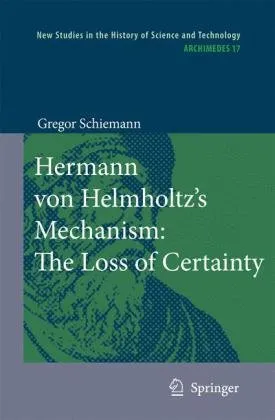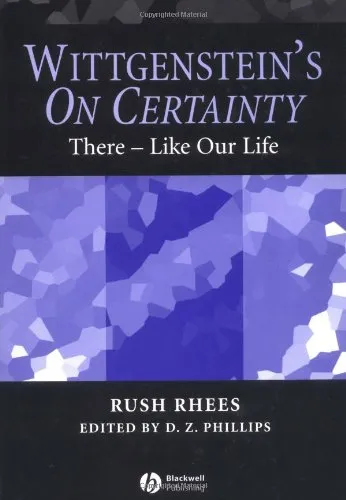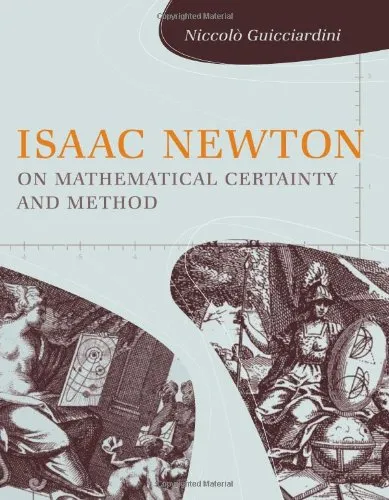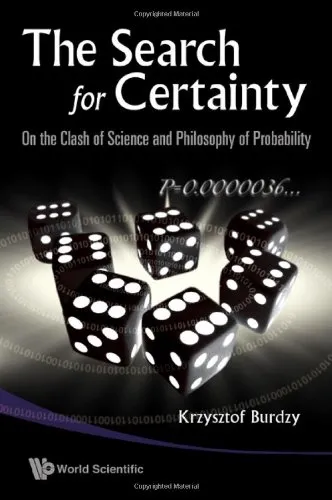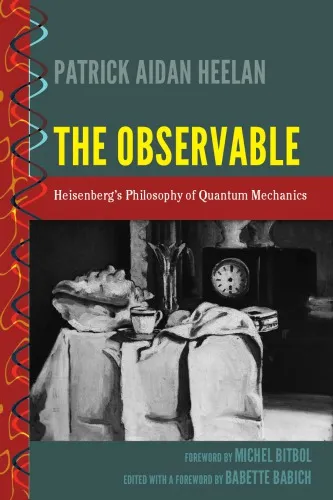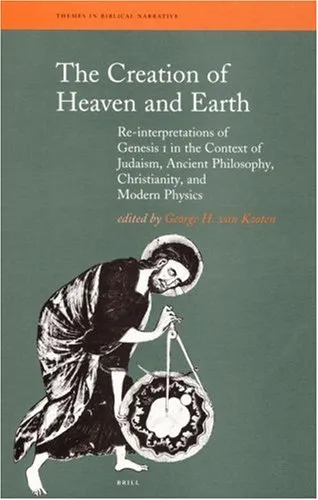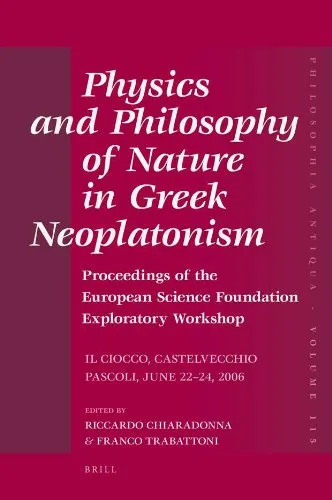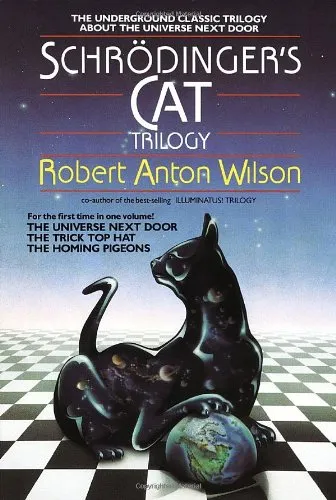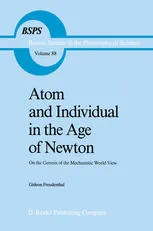Hermann von Helmholtz's Mechanism: The Loss of Certainty: A Study on the Transition from Classical to Modern Philosophy of Nature
4.5
Reviews from our users

You Can Ask your questions from this book's AI after Login
Each download or ask from book AI costs 2 points. To earn more free points, please visit the Points Guide Page and complete some valuable actions.Related Refrences:
Explore the depths of scientific philosophy and transition through intellectual history with 'Hermann von Helmholtz's Mechanism: The Loss of Certainty: A Study on the Transition from Classical to Modern Philosophy of Nature'. The book delves into the transformation of thought within the natural sciences and its philosophical implications during the 19th century, mirroring today's scientific challenges.
Summary of the Book
In 'Hermann von Helmholtz's Mechanism: The Loss of Certainty', the work of Hermann von Helmholtz is meticulously examined to showcase a pivotal era in the history of science where certainty, which once characterized classical scientific principles, began to wane. Helmholtz, a versatile scientist and philosopher, is pivotal to understanding this transition. The book explores his endeavors in physics, physiology, and philosophy, shedding light on the crests and troughs of certainty in scientific inquiry.
Helmholtz's role in advancing the sciences was momentous. His work initiated a shift from the deterministic models of classical physics to the probabilistic frameworks that Samuel Schiemann identifies with modern scientific thought. Through a thorough examination of Helmholtz's contributions, particularly in thermodynamics and the speed of nerve signals, the book reveals the changing landscape of the philosophy of nature during his time.
The narrative carefully articulates the gradual erosion of deterministic belief systems, replaced by a nature viewed as contingent and not entirely knowable—ushering in the principles that underpin modern physics theories like quantum mechanics. Helmholtz’s career becomes a microcosm for wider transformations, with chapters addressing pivotal topics like the law of conservation of energy and the philosophical implications of physiological optics.
Key Takeaways
- Hermann von Helmholtz was instrumental in bridging classical determinism with modern science's probabilistic nature.
- The transition from certainty mirrors the broader shift in the philosophy of science, impacting how contemporary science is approached.
- Helmholtz’s interdisciplinary approach highlights the importance of integrating various scientific fields to achieve intellectual progress.
- Understanding the history of scientific philosophy helps contextualize current scientific debates and methodologies.
Famous Quotes from the Book
"The journey from the mechanistic certainties of classical physics to the uncertainties emblematic of modern scientific thought is as much a philosophical voyage as it is a scientific one."
"Helmholtz’s legacy is not just a testament to his discoveries, but a reflection on how we perceive the reliability and scope of scientific knowledge itself."
Why This Book Matters
The significance of 'Hermann von Helmholtz's Mechanism: The Loss of Certainty' lies in its comprehensive analysis of a turning point in scientific thought. This work serves as a crucial resource for historians of science, philosophers, and anyone interested in understanding the evolution of scientific paradigms. As science continues to tackle the uncertainties of quantum mechanics, climate change, and technological advancement, revisiting the shifts of past beliefs becomes imperative. Helmholtz's story is a timeless reminder of the dynamic nature of scientific knowledge and the perpetual search for understanding within an ever-evolving world.
By offering an analytical lens on the philosophical transformations sparked by Helmholtz's work, the book enriches contemporary debates on the nature of science and its role in society, making it essential reading for both academic audiences and general readers fascinated by the intricacies of scientific development.
Free Direct Download
You Can Download this book after Login
Accessing books through legal platforms and public libraries not only supports the rights of authors and publishers but also contributes to the sustainability of reading culture. Before downloading, please take a moment to consider these options.
Find this book on other platforms:
WorldCat helps you find books in libraries worldwide.
See ratings, reviews, and discussions on Goodreads.
Find and buy rare or used books on AbeBooks.
1409
بازدید4.5
امتیاز0
نظر98%
رضایتReviews:
4.5
Based on 0 users review
Questions & Answers
Ask questions about this book or help others by answering
No questions yet. Be the first to ask!
